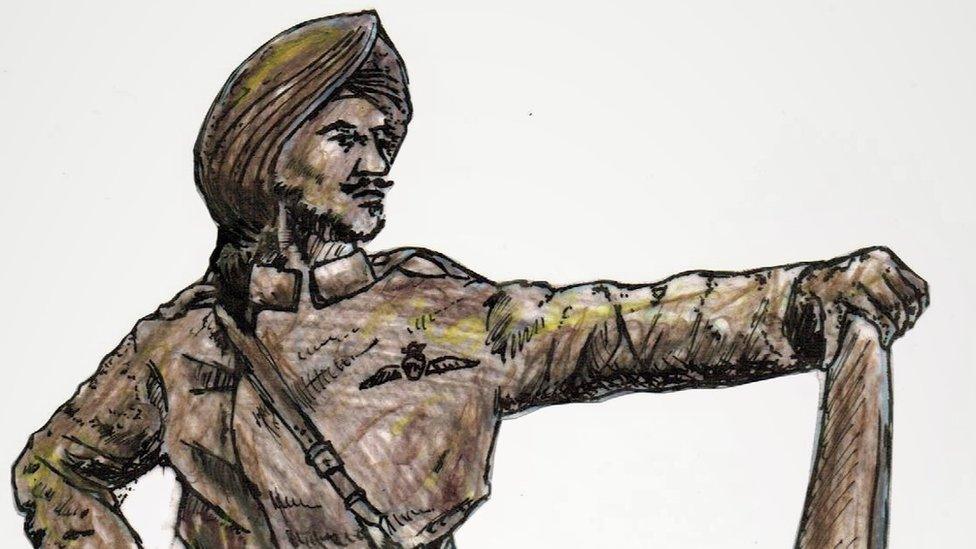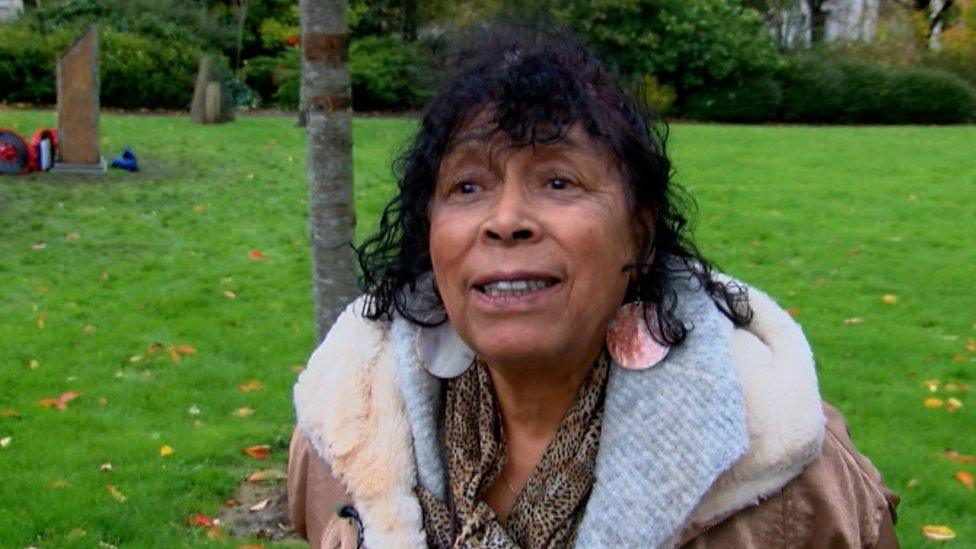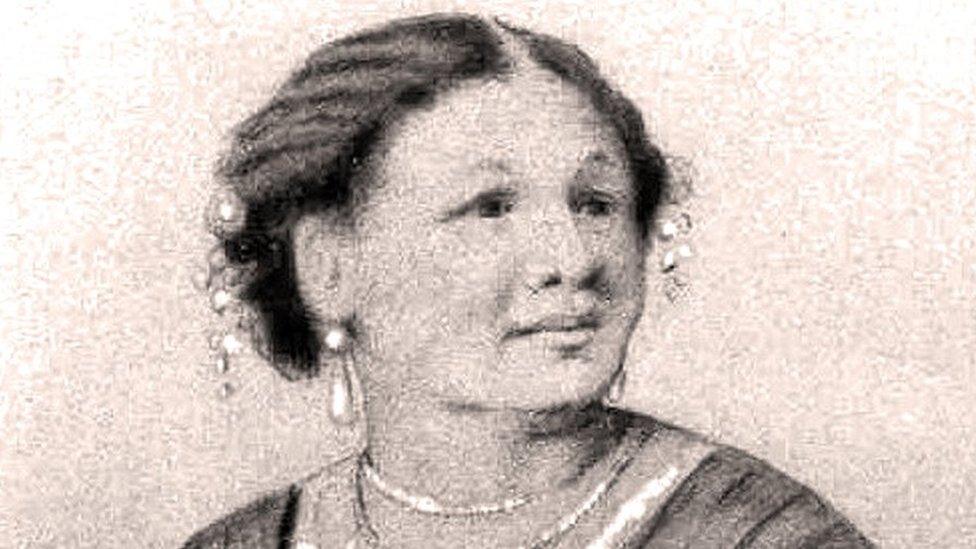Statue planned of Indian World War One pilot Hardit Singh Malik
- Published

It is hoped the statue of Hardit Singh Malik will be installed near Southampton's Sea City Museum
An Indian World War One fighter pilot is to be commemorated with a statue in Southampton
The planned memorial to Hardit Singh Malik is to be dedicated to the black and ethnic minority service personnel who lost their lives in the two world wars.
He was renowned as the first Indian to fly as a pilot with the Royal Flying Corps - the precursor to the RAF
Sculptor Luke Perry said the statue would represent "real history".
Group Captain Malik became known as the "Flying Sikh" during World War One as he wore a specially designed helmet that fitted over his turban.
He served on the Western Front flying a Sopwith Camel on combat missions across France and Italy.
He was one of only two Indian pilots to survive the war, despite being wounded and crash-landing behind enemy lines in October 1917 when his aircraft was found to have been hit more than 450 times.
More than 1.2 million Indians fought and 70,000 died during World War One, although only four became pilots.

Hardit Singh Malik flew combat missions across France and Italy during World War One
Malik later went on to a distinguished career as a diplomat and became India's ambassador to France in the 1950s.
Mr Perry said: "Malik is wonderful person to be able to represent. Being part of the movement of recognition of our past is so exciting and vindicating."
One Community Hampshire and Dorset (OCHD) and the Southampton Council of Gurdwaras have campaigned for the statue to mark the "lost history" of ethnic minorities fighting for Britain and the allies.
Pritheepal Singh, OCHD director, said he was "absolutely delighted" with the final design.
"It testifies to the major contribution our Sikh and broader ethnic minority communities have made to our country, as we live in such a vibrant multicultural society here in Southampton."
The statue and plinth is set to be almost 17ft (5m) high in total.
It is hoped the statue will be installed near the city's Sea City Museum by April 2023.
Related topics
- Published3 November 2019

- Published26 July 2020
